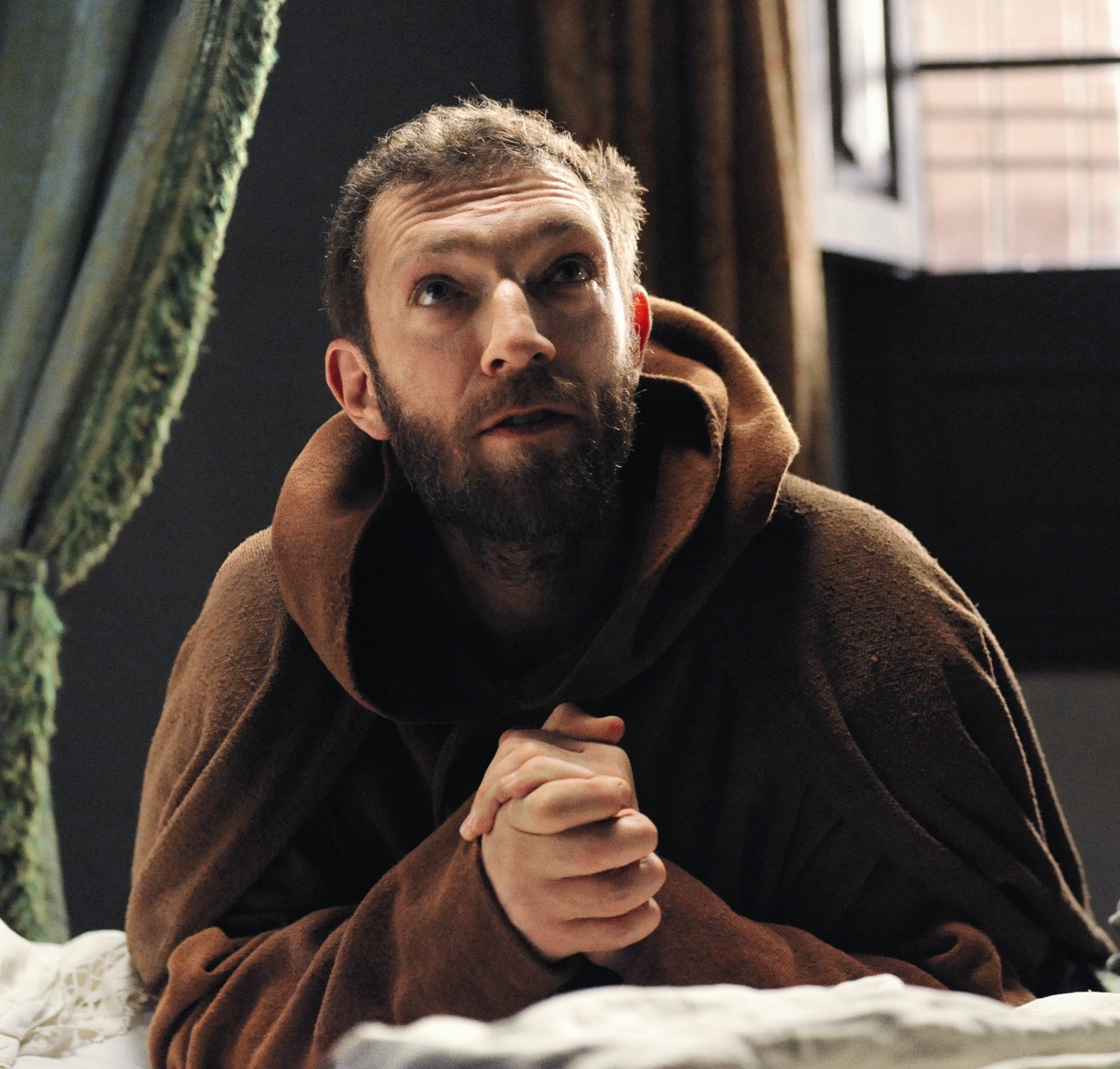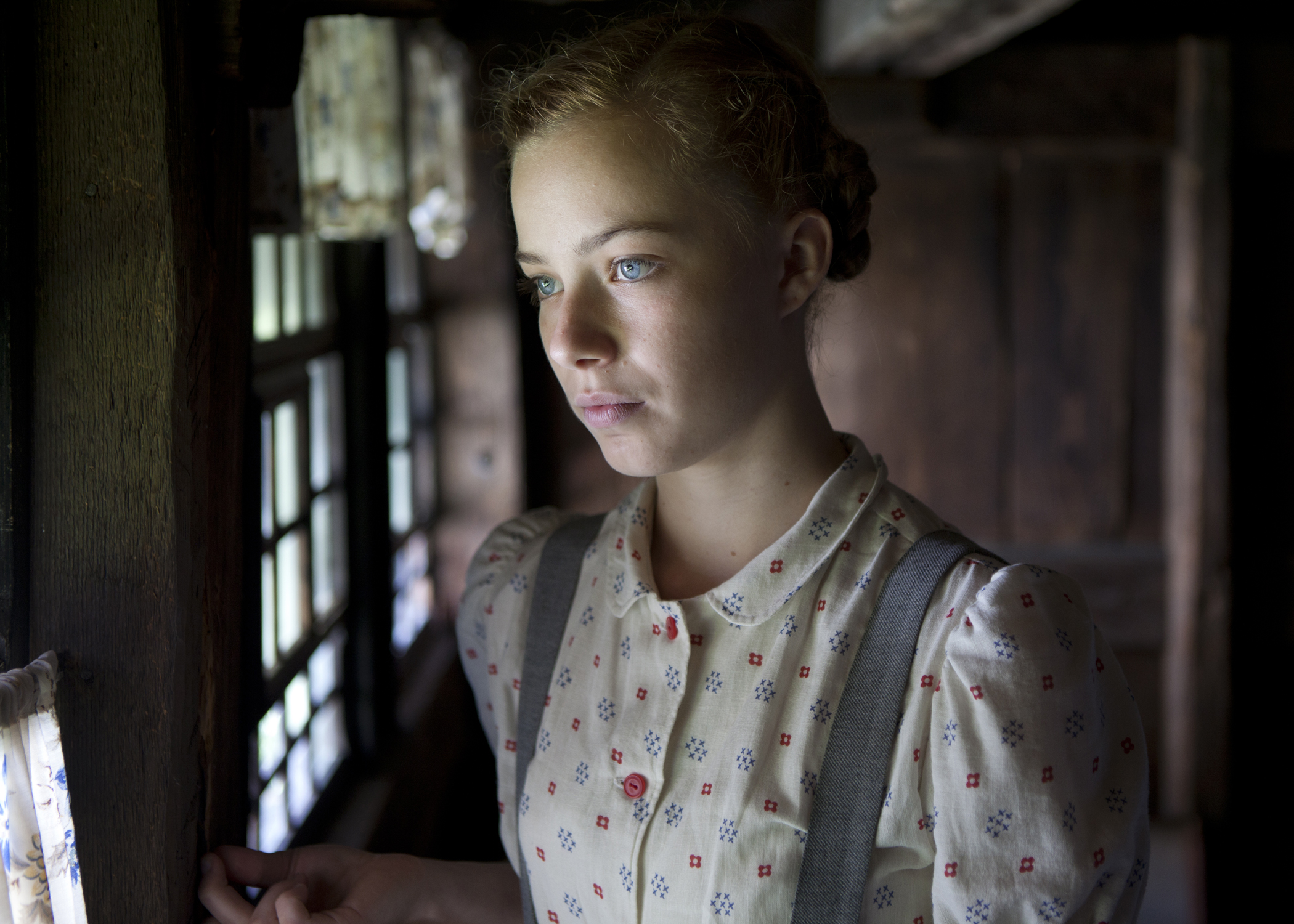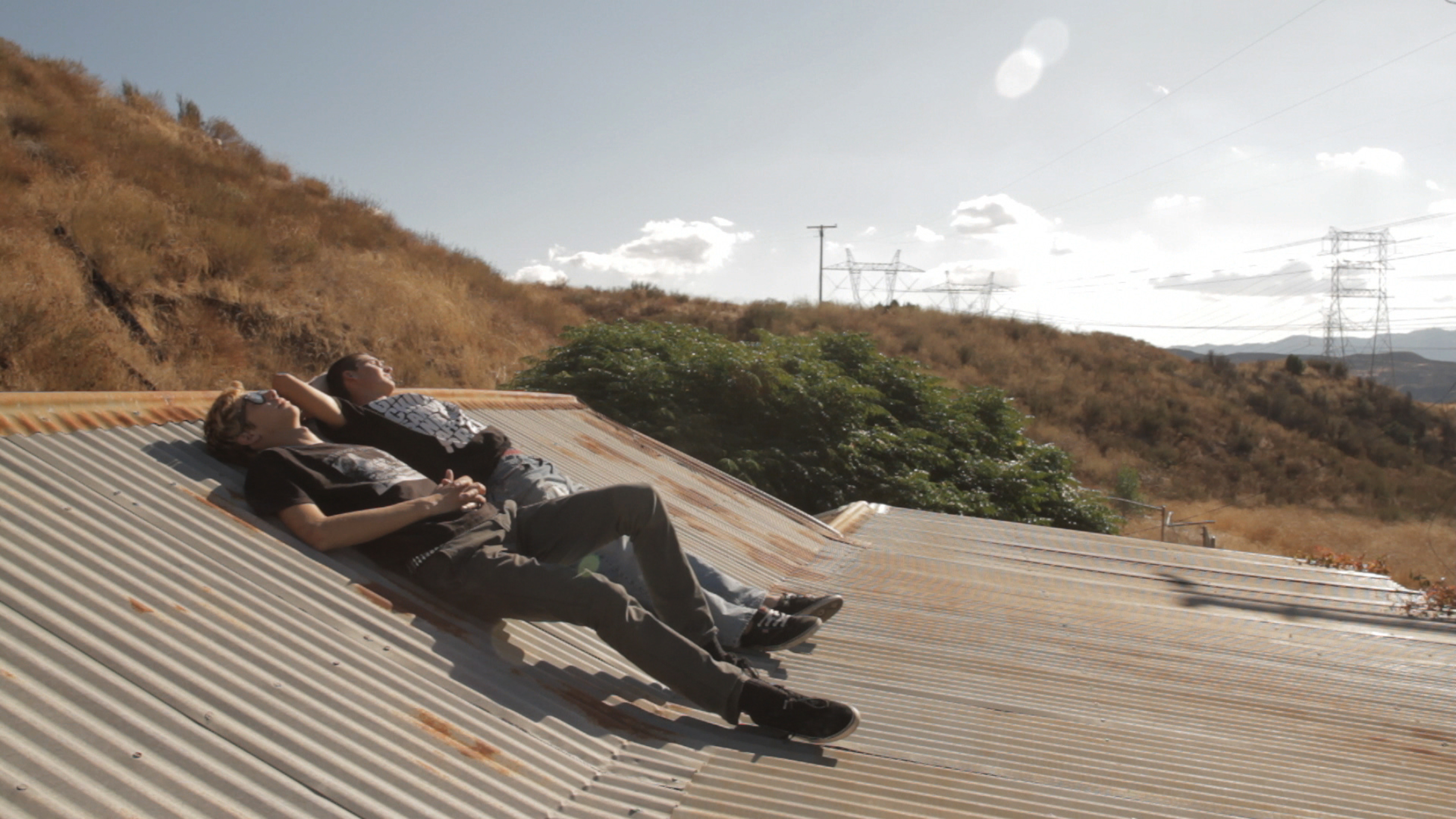Emperor
Opens Fri., March 8 at Guild 45th. Rated PG-13. 106 minutes.
Tommy Lee Jones has been supremely adept at playing grumpy old men since he was in his 40s. The Fugitive, Men in Black, and his recent Oscar-nominated turn in Lincoln have baked his crustiness to a perfect crust. If there were a movie that consisted of nothing but Jones glowering and shouting “You damn kids get off my lawn!”, people would pay to see it. Fewer people, however, will line up to see Jones as Gen. Douglas MacArthur—a towering, egotistical commander during World War II, a political flop after the war, once one of the most famous men in the world. Yet some 50 years after his death, he’s largely forgotten, and Jones is relegated mostly to the periphery of a movie that ought to be about MacArthur.
Based on a Japanese historical account set in postwar Tokyo, Emperor is mostly narrated through the figure of young Gen. Bonner Fellers (Matthew Fox), an actual assistant to the smugly regal MacArthur, supreme commander of defeated Japan. The title Emperor refers as much to MacArthur as to Hirohito, whose fate Fellers is charged with deciding. Should the weak, reclusive emperor be charged as a war criminal? And would such a shocking trial cause the people to revolt, as several Japanese characters tell Fellers, and possibly turn the country Communist? Complicating matters—and here’s your historical embellishment—is Fellers’ lost Japanese love from college, a former exchange student named Aya (Eriko Hatsune), whom he’s trying to find in the rubble.
Despite its two American stars and English director, Peter Webber (Girl With a Pearl Earring), Emperor is very much a Japanese production. From the very first archival images of the Enola Gay’s ominous flight, it’s apparent this will be a “balanced” movie. The following scenes are stilted and didactic, as Fellers is lectured about the U.S. fuel embargo that preceded Pearl Harbor, our own shameful colonial history, and the innocents killed in Hiroshima, Nagasaki, and the Tokyo firebombing raids. Seven decades later, such arguments should certainly be aired—especially for those who’ve never heard of MacArthur. But here those arguments are deathly dull and declarative. It’s as if the entire cast, Japanese and American, is reading from cue cards. Fox does little more than listen (or look moony in awkward college flashbacks); much of the Japanese characters’ English sounds phonetic (subtitles are random); and Jones, again, has too little screen time to paint his khaki prima donna.
In one scene, Aya draped over his shoulders, Fellers attempts to type a report on the Japanese national character. The camera noses close to the paper on the platen. Clack, clack, clack. What’s his conclusion? The keys swat out the word “mysterious.” About Hirohito’s war guilt or why this movie was made, the same word applies. BRIAN MILLER
Greedy Lying Bastards
Opens Fri., March 8 at Varsity. Rated PG-13. 95 minutes.
Throughout most of this new eco-agit-doc, I was dubious of what good it could do. Greedy Lying Bastards effectively describes (again) the global warming caused by greenhouse gases and how (again) political donors from the energy sector have prevented any real policy debate on the matter in Washington, D.C. Filmmaker Craig Rosebraugh’s telling of the interplay among Koch Industries, Oklahoma Senator James Inhofe, and a cadre of climate-change-denying think tanks is strongly told, if not revelatory. And Greedy Lying Bastards smartly forgoes anything that might smack of strident liberalism or conspiracy theories. Many of Rosebraugh’s interview subjects are rural Americans living in red states and dealing with severe drought and massive forest fires. Al Gore’s wayward polar bear is nowhere to be found.
Still, the question remains: Americans have already ignored the evidence of global warming for a long time. An Inconvenient Truth came out in 2006. What’s another 95-minute doc going to change? Perhaps understanding this, Rosebraugh devotes the final minutes of his film to a four-point strategy for beating the “bastards”: consumer boycotts, pressuring your congressional representative, curbing corporate spending in politics (Super PACs, Citizens United, etc.), and ending tax subsidies to oil companies. The film’s shift from measured argument to a populist how-to on beating oil companies is jarring, but my only real quibble is that it comes too late. DAN PERSON
Lore
Opens Fri., March 8 at Harvard Exit. Not Rated. 108 minutes.
The plot here doesn’t initially seem promising: Children of Nazis fend for themselves in desperate, defeated, Allied-occupied Germany. But Lore doesn’t seek your sympathy for the forgotten innocents of war. Which is not to say that Australian director Cate Shortland (Somersault) is unsympathetic to these Germans. She simply reminds us how Nazi culture still defines them, especially fresh-faced teenager Lore (Saskia Rosendahl), the very picture of Aryan maidenhood.
Lore’s privileged life comes crashing down as she sees her SS officer father hurriedly burn the evidence of his war crimes, while her mother barks bitter reprisals. Both prepare for their inevitable capture by the Allies. Neighbors want nothing to do with the five kids. Strangers are potential predators, ready to rob or use the family’s new baby as a prop for begging food. The children duck Allied patrols and fellow refugees en route to Grandmother’s house. And they find the unlikeliest of protectors in a young concentration-camp survivor, Thomas (Kai Malina), with a startlingly clear-headed survival instinct and an instant grasp of the complicated new politics of postwar Germany.
Shortland directs with an almost hypnotic focus, favoring Lore’s immediate experience over the big picture. She uses a woozy handheld camera to make everything unmoored and tipsy; her edits blur the days into one another. Lore and her four younger siblings trek through an ever-present now, a series of negotiations and confrontations for a 14-year-old growing up fast. She’s no innocent Riefenstahl mountain girl standing tall against evil; she’s not even particularly likable. Lore is alternately scared, angry, frustrated, and torn—especially about the Jewish “inferior” who time and again saves these children. (Even Thomas and Lore’s relationship skirts expectations, leaving us more questions than answers.) If Lore is never quite gripping, its danger and loss more instructive than felt, it’s consistently involving, often surprising, and always thoughtful.
The misty landscape of forests and fields and rivers is lovely, but Lore’s real odyssey is through a dead, deluded culture holding tight to its bigotry, nationalism, and grief for the fallen Fuhrer. “Don’t be ashamed of your parents,” lectures her grandmother, but Lore learns to see differently. And from that—perhaps a new Lore and a new Germany. SEAN AXMAKER
The Monk
Runs Fri.–Sun. at SIFF Film Center, then Mon.–Thurs. at SIFF Cinema Uptown. Rated PG-13. 101 minutes.
French actor Vincent Cassel has an excellent, muscular squint. With just the faint narrowing of his eyes, you feel his silent menace and disapproval in films like Black Swan or Eastern Promises. His squint is almost Clint Eastwood–quality, possibly rivaling Lee Van Cleef’s. It’s something he must work on for hours a day. His squint does yoga. His squint does Pilates. Sometimes his squint even goes to the gym by itself, while Cassel sleeps late or checks his e-mail. And The Monk might’ve been better starring just his squint, not Cassel, here playing a dissolute monk in early-17th-century Spain. The story, based on a popular 1796 novel by Matthew Lewis, has been filmed at least three times before. It’s a Gothic tale of sin and the supernatural, praised by Byron in its day and (later) by the Marquis de Sade.
Foundling infant Ambrosio is raised by monks and grows to be a strict yet charismatic church leader. Afflicted by intense headaches, causing women to swoon during his sermons, he’s a Romantic vision of thwarted passion—a monk who can’t get laid. Introduced in a confessional, listening to a suave serial rapist describe his misdeeds, Ambrosio insists, “Satan has only the power we give him.” Yet a dark impulse has been planted in this chaste monk’s mind. Cassel’s cleric looks down upon his flock, virginal beauties among them, with new appreciation.
Unfortunately, bodice-ripping and soft-core Euro-orgies do not ensue. Nor is this some Almodovarian camp exercise or a Ken Russell romp through the rectory. Director Dominik Moll treats the material seriously, which is a serious mistake. As a novel, The Monk once might’ve scandalized like Frankenstein, but who reads it today? Ambrosio has only one way to go, and that is down to the sulfurous depths. En route, we encounter a masked succubus, incest, demonic possession, poisonous centipedes, matricide, hidden identities, ghosts, graveyard sex, and an appearance by the devil. Also, there are not one but two dark-and-stormy-night scenes.
And Geraldine Chaplin plays a fanatical nun. Any movie with Geraldine Chaplin can’t be all bad, can it? Perhaps The Monk is the exception that proves that rule. Sin and damnation were never so dreary. BRIAN MILLER
Only the Young
Runs Fri., March 8–Thurs., March 14 at Northwest Film Forum. Not Rated. 72 Minutes.
The glut of reality TV has made us rightfully wary of those who crave the camera. Teens get more than their share of media scrutiny, and any coming-of-age tale—documentary or scripted—suffers from overfamiliarity. Small town, bored teenagers, and maybe a girl between them? Haven’t we seen it all before? Such are the challenges for this intimate little profile of friendship in Santa Clarita, a sunbaked exurb northwest of L.A., past Burbank but not yet Bakersfield. High schoolers Kevin, Garrison, and Skye never visit L.A. in this uneventful doc, never see the ocean; they never even mention wanting to see the ocean. Their vistas—and prospects beyond high school—are even more limited. Kevin might move to Tennessee with his family. His best friend Garrison wants to buy a car. And apparently orphaned Skye, who’s dating Garrison, lives with her grandparents in a house that might be foreclosed by the bank. (Parents hardly figure in the film.)
None of these three kids are going to be stars, and they have an endearingly innocent candor before the camera. Filmmakers Elizabeth Mims and Jason Tippet are in their 20s, and Tippet is from Santa Clarita. They don’t question their young subjects, and any expectation of drama—like an Arizona skateboard competition—is quickly subsumed into the ordinary business of being teenagers. (Contrast this with the 2008 doc American Teen or any John Hughes movie.) Kevin and Garrison make a clubhouse in an abandoned home, but they never build a half-pipe. Skye and Garrison change their hairstyles; then they change partners. False drama or conflict isn’t forced upon them. There’s no mention of drugs or booze or sex. That the three are members of an evangelical youth group—in which Christ, skateboarding, and tacos form the Holy Trinity—matters not at all.
Again, Mims and Tippet don’t judge their subjects, choosing instead to document them with emo, blue-collar lyricism. Inarticulate Garrison and Kevin are at their best when in motion—skating through a backlit sewer pipe, jumping off a tin roof, attempting new tricks that will never get them into the X Games, never make them Shaun White. What do we learn from watching them? It’s good to be young, with ankles strong enough to jump off the roof. But Skye’s complicated family turns out to be the only story worth following here, and the filmmakers introduce it too late. You’re left wondering where these teens will be in 10 years. Even in the short framework of this doc, what happened to those big plans for building a half-pipe? “I guess time slips,” says Kevin. He has no idea. BRIAN MILLER
Yossi
Opens Fri., March 8 at Egyptian. Not Rated. 84 minutes.
Ten years after Yossi and Jagger, Eytan Fox’s drama about two Israeli soldiers in a clandestine love affair on the Lebanese border, Fox checks back in with Yossi (again Ohad Knoller), now a heart surgeon who has closed off his own heart since the death of his lover. Yossi hasn’t come out to his co-workers (though there are rumors), and he lives like a self-imposed exile in Tel Aviv, convinced he’s neither desirable nor deserving.
A sad teddy bear of a man, the likable but distant Yossi spends his evenings numbing himself with TV or Internet porn. The script walks us through his anxieties and fears in episodic snapshots more intent on making a point than illuminating his character. Then Yossi gives a ride to a quartet of young soldiers and his eyes lock with the fit, funny, and handsome Tom (Oz Zehavi). Instantly attracted, he books a room at the beachside resort where the soldiers are on leave. He’s not stalking him, really (he can’t even make a pass), but it’s no coincidence that Yossi’s vacation reading is Death in Venice: another old man lusting for youthful beauty.
We’re not talking creepy May/December romance here, but at 34, Yossi lives like a senior citizen, out of touch with a culture that has moved beyond the closeted days of his youth. It’s left to the dynamic Tom, out and confident about his sexuality, to make all the moves. This does makes Yossi an awfully familiar fantasy—for gays and straights alike—about an emotionally repressed older man saved by a young beauty who sees the kind soul and intelligence under the frumpy surface. Only the Israeli setting and gay characters —along with a pleasing self-awareness and observational acuity—differentiate Yossi from a Hollywood treatment of the same story. Which might be enough for the right audience.
This is an oddly passive character study—less a story than a portrait of stunted self-esteem. Why hasn’t Yossi noticed how the culture has changed around him? Fox doesn’t say. Still, it’s inspiring to watch Yossi break out of his blinkered perspective and finally grasp that he can let the world see him as he really is. Yossi and Jagger ended in tragedy. Ten years later, his world is more accepting. SEAN AXMAKER
E
film@seattleweekly.com








